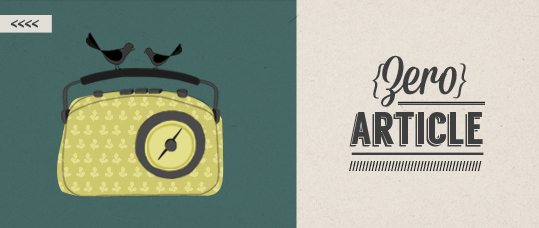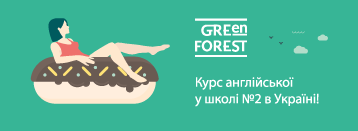Zero article
There are three types of articles: two forms of the indefinite article (a and an), one form of the definite article (the), and a zero article, which means no article at all.
In this podcast you will hear common rules about using zero article. For more information about the articles listen to our podcasts “The indefinite article” and “The definite article”.
The good news is that there are a lot of cases when we don't need to use any articles at all.
No article is needed:
- before abstract nouns used in a general sense
All you need is love.
Money isn't the most important thing in your life.
- in front of plural or uncountable nouns also meant in a general sense
I am afraid of spiders.
I like tea with milk.
- before name of a person
Nice to meet you, Daisy.
Nice to meet you, too, Lester.
- with years, seasons, months and days
I was born in 2000 in winter, actually in February, on Tuesday.
- for most places consisting of the name of a person or the name of a person followed by a noun
McDonald's, Lloyds Bank, St. Paul's Cathedral, Buckingham Palace, Kennedy Airport, Waterloo Station, Cambridge University, etc.
But we say the White House because ‘White' is not the name of a person or place.
- in front of company names
He works for Microsoft, his dad works for Google and his sister for Apple.
- before most roads, streets, parks, squares or bridges
Queen's Road, Oxford Street, Central Park, Times Square, Tower Bridge, etc.
But this rule has some exceptions:
The Golden Gate Bridge, the Boston Post Road, etc.
- for magazines
Waiting for the flight I prefer reading Cosmopolitan.
- with languages
She can speak English, Arabic and Turkish.
But when they are followed by the word ‘language' we use the
He studies the English language at school.
- with different types of transport after preposition by
Jack gets to work by train but yesterday he went by boat.
Did you get here by train?
I prefer travelling by plane.
- before the names of meals
I don't eat breakfast in the morning only coffee but I have lunch with three courses.
- for the names of games or sports
Jane plays golf every weekend and plays tennis twice a week.
- with possessive adjectives (my, his, her, our, your, their)
This is my toy not yours.
Please, don't touch, it is my pen.
- with next and last + week, days of the week, parts of the day, etc.
Last night I saw Suzy, she looked terrible.
Next Wednesday we are having a test.
- in front of television as a medium not as an appliance
Carol watched a chat show and saw her mom on TV yesterday evening.
Please, don't put hot cups on the TV set.
'The TV set' because it is meant as an appliance.
- before a noun followed by a categorizing letter or number
Please, open your books on page 56 section C.
I live in apartment 89.
- in headlines to save place
Titanic Sinks Four Hours After Hitting Iceberg, War on America, etc.
- before bed, church, court, hospital, prison, school, college, class, home, market, work, university, etc. when these are used for their primary purpose and regarded as institutions
If these words are used for any other purposes and they are considered as buildings or particular places, the is required.
She goes to church every Sunday to pray and to talk to the priest.
She goes there for the primary purpose.
He entered the church to photograph its interior.
He went there not for the normal use to pray, he just wanted to take photos.
He was released from prison one year ago.
It means that he was a criminal there.
She works as a guard in the prison.
The prison is a building where she works.
No article is needed with a lot of geographical features. They are the following:
- names of continents
Africa, Asia, North America, etc.
- names of countries
Spain, Canada, Ukraine, France, etc.
- names of cities
New York, London, Kiev, Bangkok, etc.
- names of single mountains
Mount Everest, Mount Goverla, Mount Cook, etc.
- names of single hills
Capitol Hill, Silent Hill, etc.
- names of single islands
Easter Island, Rhode Island, etc.
- names of single lakes
Lake Victoria, Lake Como, Lake Baikal, etc.
I hope the information was useful for you.
Thanks for listening.
















